The Rise And Rise Of Ronny Chieng
With an Emmy Award under his belt, Malaysian-born Ronny Chieng opens up about taking risks, chasing dreams and pushing for greater diversity of Asian stories in showbiz.
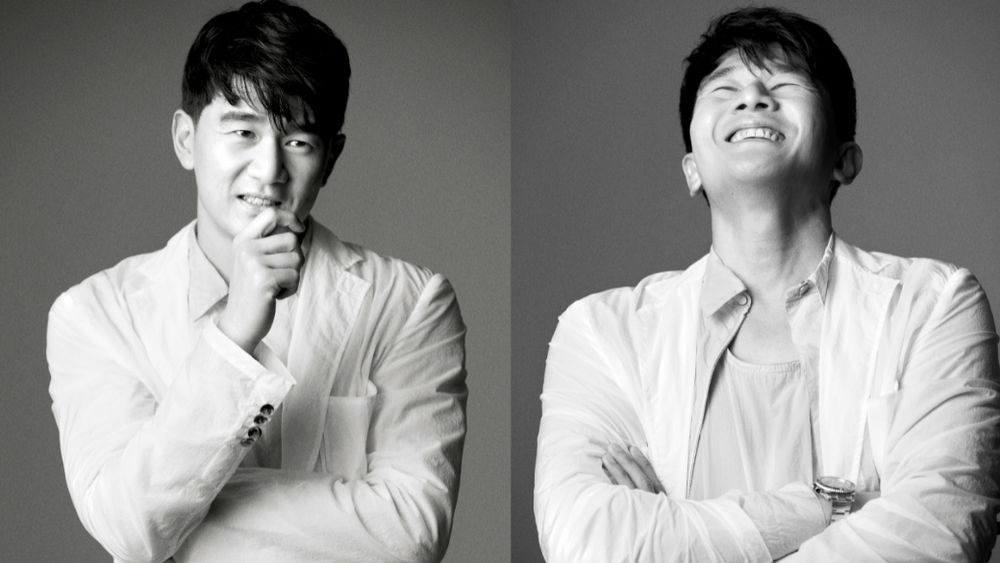
The Emmy win this past January for The Daily Show with Trevor Noah, in the category of Outstanding Talk Series, hammers Ronny Chieng’s name onto a recognition wall that, until recently was an elite list of Jon Stewart, Stephen Colbert and John Oliver—titans of American political satire. Chieng has been a correspondent for the show for over nine years, and in November of last year, guest-hosted it for the first time. Two months before that, he sold out The Star Theatre’s 5,000 capacity for two nights. Compare this to David Bowie’s 4,000 draw at the Singapore Indoor Stadium in 2004, and you get a sense of how far being a standup comedian now compares to “rock god” among aspirations.
Related article: Ronny Chieng On The Last Time He Was Amused, Irritated And Felt A Sense Of Accomplishment
Even following his Singapore education track would have landed him far from his rubber-tapping farming roots in Sitiawan, Perak. After Fuchun Primary, Pioneer Secondary, and Pioneer Junior College, he graduated from the University of Melbourne with commerce and law degrees. Accenture offered him a cushy gig in Kuala Lumpur as a technology consultant. He chose comedy––the kind of career choice that wakes Asian parents up at night, screaming.
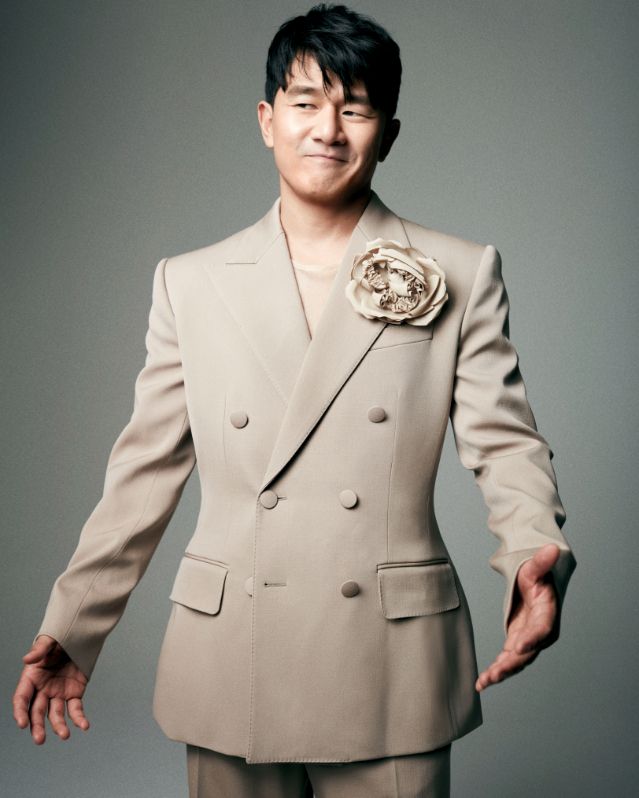
Jacket; top; trousers, DOLCE&GABBANA.
At 38, he is part of a new class of global Asian celebrities—one that includes the likes of Awkwafina, Simu Liu, NBA star Jeremy Lin, and, of course, fellow Malaysian, the Oscar-winning Michelle Yeoh. He worked his way up to sold-out shows with stints at Montreal’s Just For Laughs comedy festival in the 2010s, famously getting noticed by Noah, who gave him the correspondent gig in 2015. “The Daily Show is like the Harvard Business School of comedy, where everyone’s super on it,” Chieng says. “Everyone there is great at their jobs, so it makes you better. When everyone around you is really good, then you have to live up to it.”
Related article: Michelle Yeoh And Other Women Over Fifty Own The Red Carpet Right Now
A look at his breakneck ream of film and TV projects reveals his sustained discipline: Ronny Chieng: International Student (2017), Crazy Rich Asians (2018), Marvel’s Shang-Chi And The Legend Of The Ten Rings (2021), Long Story Short (2021), M3GAN (2022), Netflix specials Asian Comedian Destroys America! (2019) and Ronny Chieng Speakeasy (2022), as well as a docu-comedy Ronny Chieng Takes Chinatown (2022). He’s currently on his “Love To Hate It” tour, with dates across the US. This, fresh from starring as Fatty Choi to Jimmy O. Yang’s Willis Wu in the upcoming Hulu miniseries Interior Chinatown, an adaptation of Charles Yu’s bestseller and directed by Taika Waititi.
On the day of his morning shoot with BAZAAR, he arrives early, despite being on a personal break (he sees his mother in Singapore twice a year). He gets his own coffee. He has plans for a Brazilian jiu jitsu session at some point. He tolerates enough hair product to turn a K-pop group into Trolls. He gamely tries on several outfits, cocking a “why-me?” brow when at one point he winds up twinning with the stylist (“What do you mean you don’t know how this happened? You made me wear it!”). He workshops each joke, trying out different deliveries. In between, he shares his insights, and why he reckons there needs to be larger cojones before more Singaporean creatives see global recognition.
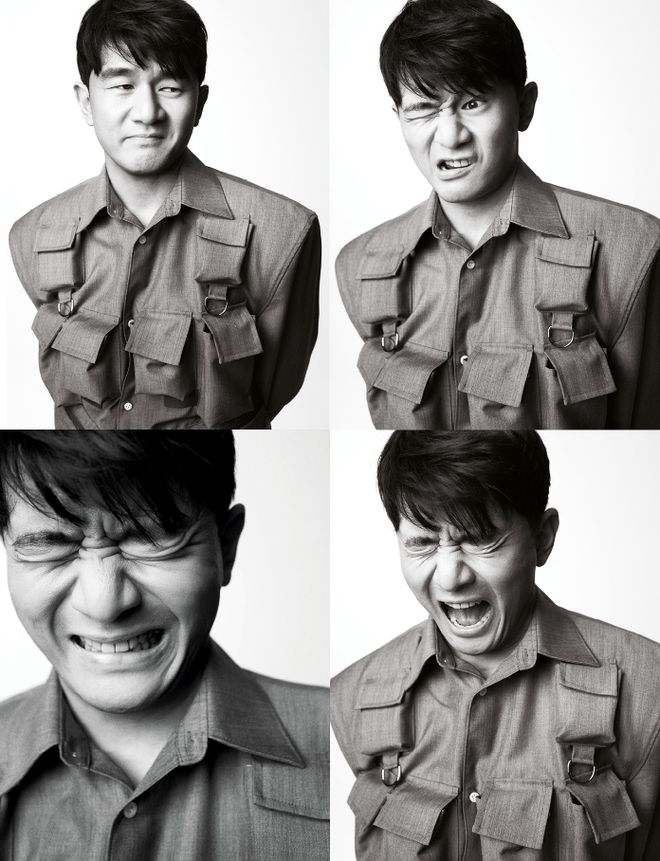
Shirt, PRADA.
How would you compare the modern experience of moving to America vs. the experience of someone from, say, Bruce Lee’s time?
I follow Bruce Lee a lot, but I can’t say I’d know what his experience was exactly. But it’s fair to say in America, they are now looking for interesting Asian stories, more than before. The key to getting stuff made is that you need Asian producers and executives. Having Asian talent is actually not enough. You need Asians leading the project, Asian writers.
Where do you see Interior Chinatown fitting into the spectrum of Asian stories that are onscreen right now?
Interior Chinatown, the book, was very ambitious. It doesn’t follow traditional story structures. It’s got so many layers, it’s got meta, then suddenly it becomes a courtroom drama. So by story maths, that book is very complicated. Imagine trying to make a TV show out of that. In my opinion, it’s the perfect follow up to Beef, for example. Once something like Beef has been made, you can’t really go backwards and make something worse than that. You have to make something just as cool or cooler. Interior Chinatown is just as ambitious as Beef, which is what we needed to do.
Related article: New Internet Heartthrob Young Mazino Talks Asian-American Representation In ‘Beef’
Interior Chinatown deals with Asian stereotypes and themes; like how Chinese aren’t as emotionally expressive within their families as they are to others. How did that resonate with you?
(Laughs) The book became so popular in the US because it hit something pretty authentic, a very authentic experience. It’s a very nuanced aspect of Chinese families that most people, even if they understand it as, ‘oh, Chinese parents are strict’, don’t get the specifics of—where it’s like, we never say ‘thank you’ internally, but we’re very gracious outside. That’s a very nuanced observation Charles Yu put into the book. It’s very detailed. It’s fun. It’s not just about ethnicity, but the idea of where Asians belong in America.
What was it like working with Taika Watiti?
Taika is a genius. He’s also a minority in New Zealand. He’s half Maori and he understands being culturally oppressed, facing institutional racism. Working with him was great!
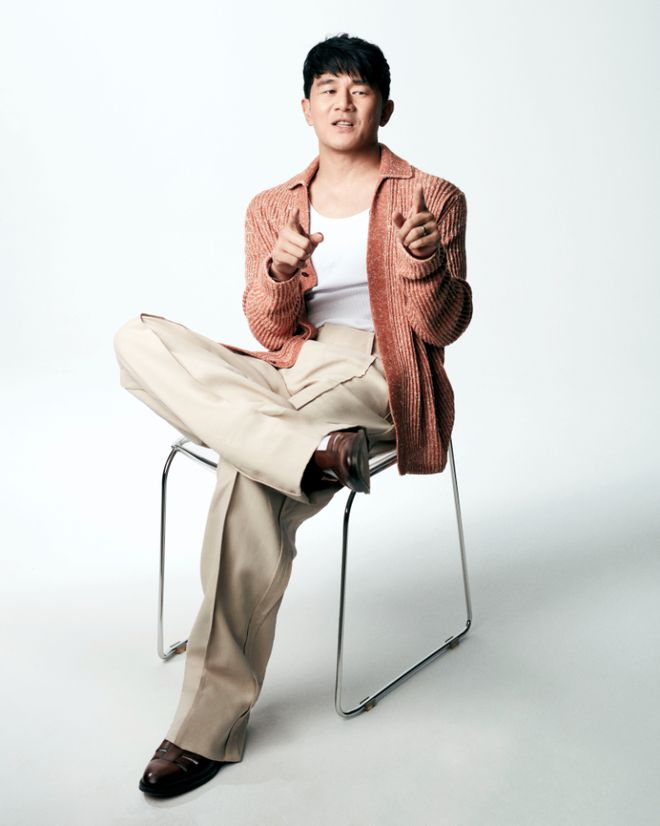
Cardigan; trousers, ZEGNA. Shoes, RALPH LAUREN. Tank top; socks, stylist’s own.
You’ve been part of a range of Asian narratives, from Crazy Rich Asians to Shang-Chi, these past five, six years. How did that happen?
Heh, yeah. I’ll work in anything that pays me money! The reason it’s so diverse is I’m lucky that they hired me. I didn’t consciously look for these parts. It’s more like, “Is that work? Please? Can I get some work?” I was fortunate!
At what point did you think, yeah, it’s all within my reach?
Yeah, what are the odds of that happening? My dad is a rubber tapper from Sitiawan. My whole family, they’re rubber tappers. They’re there. Right now. Tapping.
Wait, is this the town that people say has one crossroad?
Yeah! Now they have two crossroads! But my whole family’s still in Sitiawan. My dad’s still got the farm; they’re all Malaysian farmers. I’m the Johor Bahru guy, they’re the Sitiawan people. They’re still planting oil palm. I just wanted to do stand-up comedy. I was just pursuing self expression. I just wanted to tell jokes, and get better at telling jokes. And that was it—all this other stuff was a bonus. That’s why I say I’m very lucky to get hired. We totally didn’t care about getting famous. We were just trying to tell dumb jokes. That was literally it. The only reason we were even pursuing fame was so we could sell tickets for people to come and hear us tell these dumb jokes.
How do you think being from Malaysia gives you a unique perspective in America?
I know what it’s like to be a minority. Being Chinese in Malaysia, you’re a minority. I know what it’s like to be in a multicultural society—it gives me the understanding of Southeast Asia, of being in a real melting pot, and a little bit of a global perspective.
On The Daily Show, do you feel you had some kind of licence to say things they weren’t saying?
Yeah, insofar as I think I was able to make jokes about and from an Asian perspective, that they probably couldn’t say. Trevor’s a very international guy, very familiar with Asia, but like, obviously, not as familiar as I am, because I’m actually from here. He’d understand when I would come in with certain perspectives. Or even if I said, we can’t do this joke, because this isn’t accurate, or makes us look bad, or whatever.
When you did your show here, you had Singapore talents Sharul Channa and Jacky Ng open for you, which was really great for them.
That’s normal. One tradition in comedy is that you’d always get an opener because comics know what it’s like when you’re starting out—we know how hard it is. We know what someone else can do for you to get a fanbase, or even just confidence. That’s a very standard thing to do.
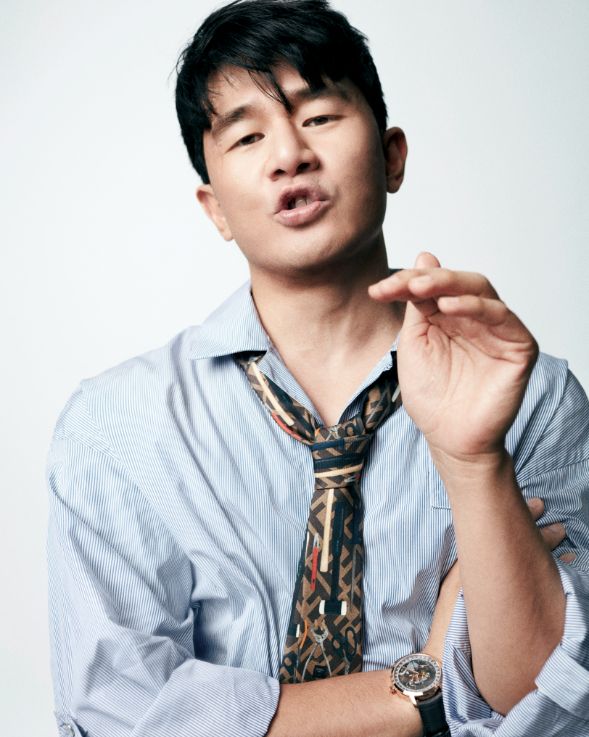
Shirt; tie, FENDI. Watch, VACHERON CONSTANTIN.
For many creatives here, it’s frustrating trying to get new ideas out, because there’s a big disconnect between them, and the machine that produces them. What do you think has to change?
I think in Singapore, sometimes people operate a lot out of fear. The bureaucracies get very scared. To put it bluntly, in Australia and Singapore, there are a lot of very talented, creative people. But when decision makers are scared, it’s easier for them to say no than to get in trouble. Because if they say no, nothing really happens, and they don’t get punished for making something lame. If they say yes, and something causes controversy, you’ll get in trouble. So a lot of them just say, ‘no, no, no, no, no — cannot’. That’s where a lot of ideas get stifled. But in America, we have Asian people in decision-making who want to make something cool, you know? They say, ‘Yeah, I’ll put my neck on the line. Let’s make something cool. To make good art, you have to be a bit edgy—you have to be willing to go to the line, cross that line and stand by it. And maybe there is something in Singaporean culture that is very like, ‘buyao malu lah!’ or ‘sia suay’ (‘don’t embarrass yourself’). So I think maybe that holds people back a bit.
Do you think Malaysians are more fearless? That they take risks more than Singaporeans?
That’s really funny. (Laughs) Maybe because Singapore is such a well-run country that you’ve got something to lose if you take a risk, you know? I don’t know if that’s true. It’s so funny that Malaysians are bigger risk-takers—I have to think about that. Maybe! (Laughs)
When you were first starting out, how did you sell the idea of being in comedy to your folks? Was it a lot of selling? Asking for the kids.
I didn’t sell it. I didn’t even tell them, I just did it. They were in a different country! I was in Australia, they were in Singapore and Malaysia. They didn’t even know what I was doing. I was trying to prove myself in stand-up comedy. I didn’t need to tell the whole world to come support me, you know? I wanted to win that support on my own. So I just went and did it. I didn’t make a big deal about it.
Here’s that advice for the kids: I think all parents want their kids to have a better life than they had, and implicit in that idea is that you want your kids to have a happier life than you have. When we say better life, part of that is a happier life. So if you’re doing something you love, ultimately, your parents will get behind it, even if they don’t understand it in the short term. That’s what they want for you. If you play that over the long term, it will all make sense.
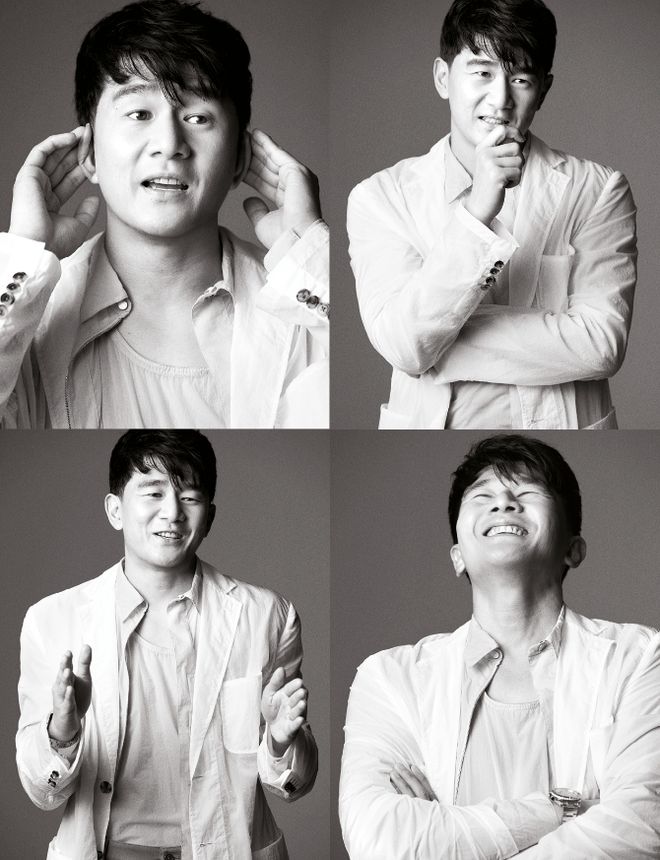
Jacket; shirt; t-shirt, HERMÈS.
Photographer: Joel Low
Stylist: Jeffrey Yan
Writer: Serene Goh
Digital content producer: Navin Pillay
Photographer’s assistant: Eddie Teo
Stylist’s assistant: Joelle Iong
Serene Goh is a guest writer for BAZAAR Man and founder/director of Brango, a content solutions company. Contact her at brango.com.sg.